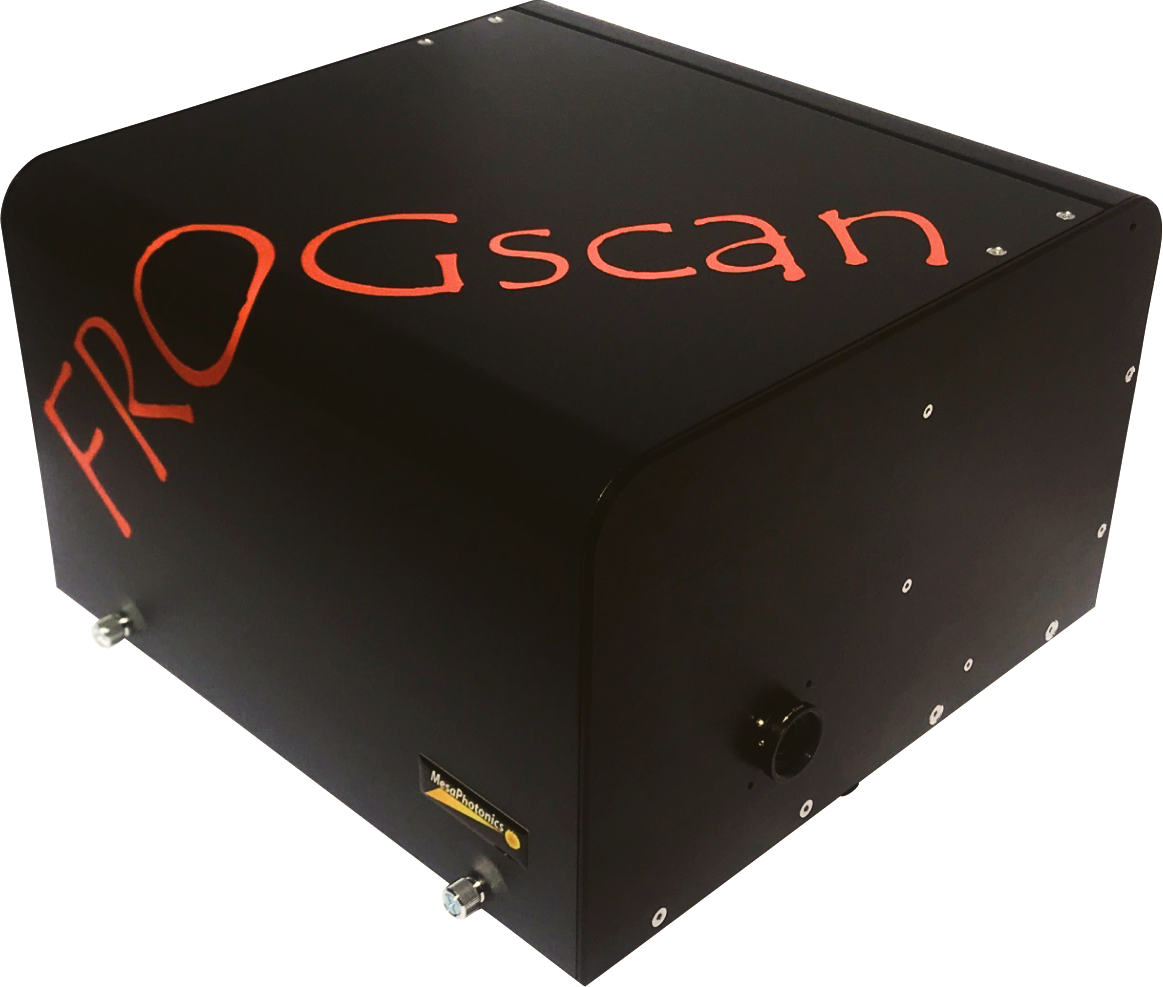Input Parameters
|
| Input Beam Size |
> 2 mm, 8 mm clear aperture |
| Input polarization |
horizontal |
| Minimum Power |
(Average Power)2/(Rep rate X Pulse Width) > 4W2/pulse |
| Input Pulse Wavelength Range |
450 nm – ~4000 nm, spectrometer and crystal dependent |
| Minimum Pulse width |
~ 12 fs |
| Temporal Range |
240 ps |
| Maximum Time Bandwidth product |
~ 50 |
Data Acquisition
|
| Patents |
US patent # 7,130,052, 8,068,230 |
| Digitization Resolution |
14 – 16 -bit (Spectrometer Dependent) |
| Minimum Delay Increment |
4 fs |
| Spectrometer Spectral Resolution Minimum |
0.04 nm |
| Spectrometer Spectral Resolution Typical |
0.44 nm |
| Spectrometer Spectral Resolution Maximum |
~ 1 nm |
| Spectral resolution at input wavelength (“effective spectral resolution”) |
~2 x sqrt(2) x spectrometer resolution |
| Spectral Range |
Spectrometer Dependent and pulse width dependent, nominally 100 nm – 600 nm per spectrometer |
| Minimum Integration time (spectrometer dependent) |
1 ms† |
| Repetition rate (without triggering) |
100 Hz – > 1 GHz |
| Triggered repetition rate |
< 1 Hz – ~ 1 kHz‡ |
| Intensity Accuracy |
~ 2% |
| Phase Accuracy 0.01 radians |
0.01 radians |
| Spectra required for measurement |
Number in grid |
| Acquisition Speed |
~130 spectra/second |
| Maximum Grid Size |
1024 x 1024 |
| Maximum Optical Delay acceleration |
~12G (estimated) |
| Maximum speed based on maximum acceleration |
21 ns/s (double pass, 1.55 m/s) |
Optional Accessories
|
| Software controlled crystal tilt |
|
| Direct Drive microstepped, 5 pole stepper motor |
Yes |
| Angular resolution |
< 0.1 degrees |
| Angular repeatability |
better than 0.1 degrees |
| Angular range |
+/- 30 degrees |
| Angular tilt scanning for increased phase mathcing bandwidth |
Yes |
| Alignment Cameras |
|
| Sensor silicon CCD cameras |
2 |
| Wavelength range |
450 nm – 1000 nm(out to ~1550 nm using 2 photon absorption) |
| Focal plane of crystal image |
Yes |
| Fixed delay beam |
Yes |
| USB 2.0 Interface |
Yes |
| Frame rate |
8-10 Hz |
Physical
|
| Dimensions |
33 cm x 33 cm x 19 cm |
| Shipping weight |
about 40 lbs (18.2 kg) |
| Power requirements |
100 – 230 VAC, 50 – 60 Hz |
| Electrical Plug style: |
US NEMA 5-15, change on request |
| Cover |
Integrated |
| Control electronics |
Integrated |
| Crystal mounting |
Removable/replaceable Kinematic Cartridge |
| Spectrometer Mount |
Kinematic Removable |
| Beam splitter |
Reflective, spatial |
Data Analysis
|
| Video FROGscan software |
Included |
| Algorithm speed 64 x 64 grid (Core i7, Gen. 7, mobile) |
> 12,600 iterations per second |
| Algorithm speed per pixel |
~ 20 us |
| Algorithm type |
Proprietary PCPG (US patent # 6,219,142, 9,423,307, 10,274,378) |
| Analysis rate |
real-time |
| Update |
once per frame |
| Preprocessing |
background subtraction, smoothing, median filter, adaptive rank filter |
Notes
|
| *With the optional Hollow retroreflector |
| †Minimum integration time: Flame 1 ms; HR2000+ 1 ms; QEpro 8 ms; Maya Pro 7.2 ms; Ocean FX 10 μs. |
| ‡ At greater than ~50-100 Hz, not every pulse is captured. E.g., pulses are skipped. |



